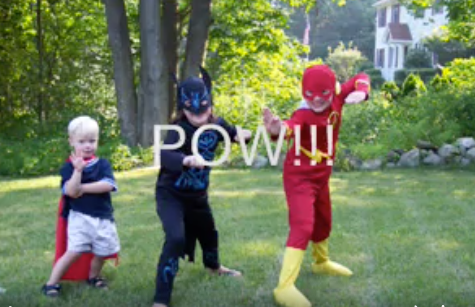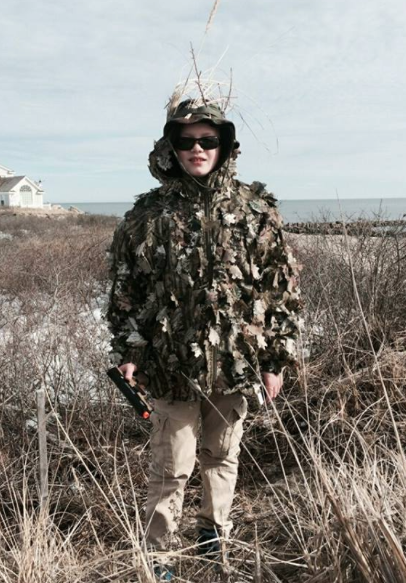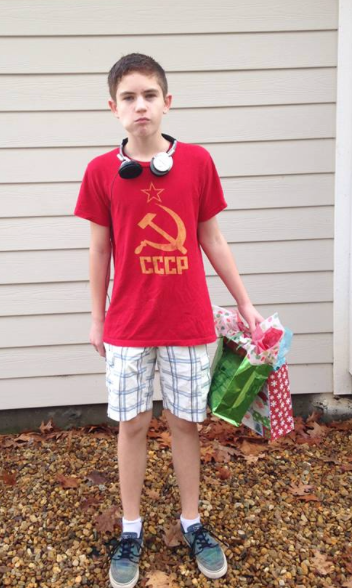What's it all about? Reflections on My Approach to Teaching World History by John R. Murnane
I’ll never forget inviting Professor T.H. Von Laue to discuss Russian history with my class at Clark University: he introduced himself as a “student of history” (mind you, at that time he was in his eighties, wore half-glasses and a rumpled suit coat, he was fluent in four languages with a long list of publications, and he was the son of a Nobel Prize winning physicist). This “student of history” never lost his spark, the curiosity to learn and to question; he never got caught up in titles—education was a never-ending pursuit and he was determined to keep at it decade after decade. Von Laue introduced me to the study of world history and the need to think on a global scale (he was a pioneer in this field). He invited me to attend my first world history conference at Bentley College in 1994.
Von Laue’s habits and values are at the core of my educational philosophy: never stop learning; think globally; model intellectual curiosity.
Nobody with his or her eyes open can ignore the deluge of information the 21st Century has brought; nobody who has taught or studied world history can profess to know it “all.” The only logical path is to keep learning. This attitude helps teachers put themselves in the shoes of the students: it reminds them of what it feels like to learn something for the first time, the struggle involved, the excitement; it fosters a sense of humility and empathy; it lends itself to a kind of natural role modeling of the type Von Laue exhibited during his many years as a scholar and an educator.
Of course, talking about it only goes so far. Modeling intellectual curiosity works best through actions. Publishing, reading on a wide variety of topics, and discussing issues with students and faculty alike all have a positive impact on students and teachers and the entire learning atmosphere in individual classrooms and throughout an entire school.
Contemplating the enormity of the world’s problems and the palpable sense of uncertainty in our global age can be intimidating. It can just as easily be seen as an opportunity, a way to discover and explore new things. Historian William H. McNeill referred to cultural diffusion as the “drive-wheel of history.” The process of borrowing across cultures extends into nearly every area of our lives from music to math, from science to dessert recipes; our lives are a product of this on-going global process. We cannot stop it: we need to help students embrace it and adapt to it, armed with a sense of curiosity and the desire to keep learning. It is a set of values adults need to exhibit as well as expound. In a sense, we all need to become Von Laue’s “students.”
Philosophy into Practice?
I had the good fortune of teaching AP World History, getting in on the ground floor, so to speak, starting in 2002, the first year the course was offered by the College Board. It was a monumental task. The history of the world! I taught it for 14 years. Before that I had been teaching American history; my doctorate was in American Diplomatic History at Clark University. I had to fill in many gaps in my knowledge. My copies of World Civilizations: The Global Experience by Peter Stearns, Michael Adas, Stuart Schwartz and Marc Gilbert, Guns, Germs and Steel, by Jared Diamond, John Reader's Africa: A Biography of the Continent, Ideas: The History of Thought and Invention from Fire to Freud by Peter Watson and Fareed Zakaria's The Post-American World are worn out; these works, and others, helped me see the "big picture" and to conceptualize world history.
Discussion with colleagues at Worcester Academy, a prep-school a stone's throw from where I met Von Laue, helped me grow as a teacher as well. Two Worcester Academy faculty members in particular challenged me to think in new ways: Eric Plickert and Jeffery Pappas. Eric is a true Renaissance man. He holds a Mater's of Divinity from Yale and a B.A. in Science from Ithaca College. He is an outdoorsman--he is an expert in land navigation, kayaking, and rowing. He makes furniture and putters with gardening during his spare time. He reads voraciously. Eric encouraged me think outside my discipline, to incorporate science, math, art, music, literature and current events into my thinking. Over many cups of coffee, he patiently helped me grasp concepts from a variety of fields--from global warming and sea-level rise to market trends and theories of childhood development and religion. My long friendship with Eric has been like completing a graduate degree in several subject areas all at once. He has helped me to see the world from many angles. Like Von Laue, Eric has never stopped learning. I've tried to bring this dynamism into my classes.
Jeff Pappas is an outdoorsman as well. Born and raised in Worcester, he attended college in Provo, Utah, at Brigham Young University, where he studied political science, literature, and history. After BYU, Jeff worked for the Massachusetts House of Representatives. In 1992, he enrolled at Baylor University, earning an MA degree in American Studies. He then joined the National Park Service as a ranger in Yosemite while earning a Ph.D. in American Indian and Public History from Arizona State University. He was writing his Ph.D. dissertation while at Worcester Academy. He left Worcester in 2006 to work on Indian Affairs in Wyoming; he is now State Historic Preservation Officer and Director in New Mexico. In my many conversations with Jeff, he insisted that history is a "problem-solving" discipline with a public role to play. It took me nearly 10 years before I knew what he meant and connected it back to Von Laue. My conclusion? A knowledge of history can lead to cultural dialogue and a certain sensitivity and comfort with differing perspectives, a way of thinking essential for the troubled world of the 21st Century. But how does this way of thinking help solve problems? And which ones?
This is where my own children come in.
My son Patrick was born in 1998. By the time I started teaching world history, I had watched hours of children's programming with him, especially Disney movies--Patrick loved to watch Mulan and Tarzan over and over again. We watched Aladdin, Pocahontas, Pirates of the Caribbean, and other movies supposedly based on historical figures or set in the past. What I saw disturbed me, culminating in an article--"Reversing the Disneyfication Process: Using Disney Films to Debunk Stereotypes and Oversimplification In Middle and High School Social Science Courses," published by World History Connected in October 2007. Counteracting Hollywood images and popular perceptions about history and other cultures has become a cornerstone of my teaching ever since.

My son, Ryan (born 2002), turned out to be more like Eric and Jeff--an outdoorsman. He also has a fascination for all things military. He liked to try on my old Air Force uniforms and play army with his friends in the neighborhood. He plans to join the Jr. Marine ROTC program in high school next year. More worries. My doctoral dissertation was critical of U.S. foreign policy. In The Guardians of Progress: The First Generation of “Action Intellectuals” and America’s Failed Search for a New World Order Since 1917, I concluded that academic "experts" have often steered the United States into conflict and that the ideas these advisors held were deeply ingrained in American thinking, particularly in the ideas of American exceptionalism and Manifest Destiny. Could I interrogate this way of thinking in my classroom teaching? And isn't this part of the Hollywood version of American history as well, the Americans as the "good guys" in action movie after action movie? A John Wayne complex?

AJ, a year younger than Ryan, helped me see the connection between media images and conflict. He loves geography and learning about people from other cultures. He competed in the National Geographic's GeoBee in 6th grade. He studies maps for hours, often drawing his own diagrams and poring over his Deep Ancestry report produced by National Geographic after we submitted a DNA sample through the mail. AJ has a propensity for black-and-white thinking, however. "Who is right? Who is wrong?" Good guys/bad guys. AJ watched his share of movies and television. But he also started to take an interest in politics and the news by 7th grade. "Islamic terrorists," ISIS, Bin Laden, Trump. These came up a lot. It raised more questions for me: What are the messages kids hear in post-9/11 America? When and where do they get a balanced view, an other side to the story?

All three of my sons spend hours playing videogames--it seems to be part of a new "generation gap," similar to the way Rock'n Roll marked the baby boomers, placing them at odds with their Depression-World-War-Two era parents. I've recently started paying closer attention. I've subscribed to two Youtube channels that deal with this subject: PBS Game/Show, which looks at the relationship between videogames and many aspects of modern life, and Feminist Frequency, an ongoing series of video commentaries exploring gender representations, myths and messages in popular culture media, created and hosted by Anita Sarkeesian. More images. War games. Simulation/ Role Playing Games. Empire Building Games. Animation/Drawing Games. But what are the messages? How does it effect the thinking of young people today? My kids? My students?
All of this is with me in the classroom!
Bottom line? History matters. It relates to the real world and serves as a counterweight to the images we are bombarded with everyday. Armed with a more realistic view of other cultures and people from around the world, international cooperation has a better chance to succeed. Such cooperation is imperative if we are to solve the many problems of the 21st Century--such as global warming, dwindling resources, population pressures, the proliferation of weapons of mass destruction, conflict in nearly every corner of the world, the threat of deadly pandemics, economic uncertainty, and an enormous gulf between rich and poor.
As a classroom teacher, I hope that I am addressing the concerns I've raised in this brief narrative. This year (2015-16) I taught two world history classes after a year away from it--they are non-AP classes, so I've had a good deal of latitude. It feels right. I've developed a special rapport with my students in all of my classes (World Civilizations II and American Studies). According to student surveys, they are enjoying my classes. I hope I've been able to get them thinking about the world they will inherit, the challenges they will face. I hope that I've reached them in the way that Von Laue motivated me, to go beyond "names and dates" to a deeper level, to see the relevance of history in everyday life and in making the world a better place. The link to the world history course appears below; these reflections on teaching were designed to place the course in a philosophical context, in a very personal, yet constantly evolving one.
John Murnane began teaching history at Worcester Academy in 1996. He has a B.A. from Salem State University, an M.A. from the University of Massachusetts, Boston, and a Ph.D. from Clark University in Worcester, Massachusetts. Dr. Murnane is also a part-time Instructor of History at Fitchburg State University and an AP consultant and reader for the College Board in World History. He has published articles in the New England Regional World History Association Newsletter, The History Teacher, World History Connected, The New England Journal of History, All About Jazz and the Jazz Times. Dr. Murnane also co-presented a workshop at the National Association of Independent Schools (NAIS) conference in Boston in March, 2006, called “From Meat and Potatoes to a 21st Century Curriculum,” which looked at and contextualized the major changes involving Worcester Academy’s curriculum over a ten year period. Dr. Murnane served as the Arts and Humanities Curriculum Coordinator at Worcester Academy for two years (2004-6), Chair of the History and Social Sciences department (2006-10), Director of Open Gates and Director of Academic Programs (2010-2014). Dr. Murnane served in the U.S. Air Force, 1984-88. He lives in Holden, Massachusetts, with his wife and three sons. He plays the saxophone, the clarinet and the drums.